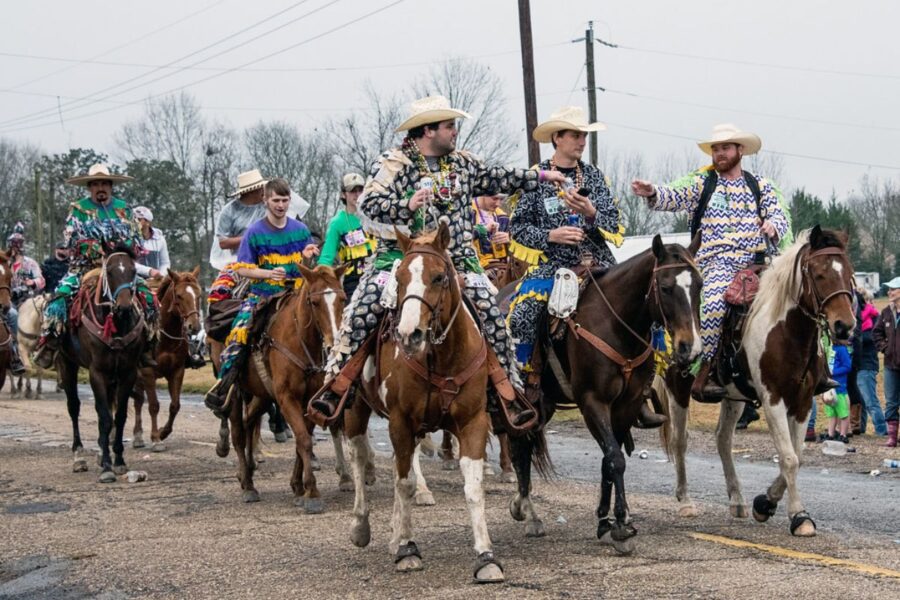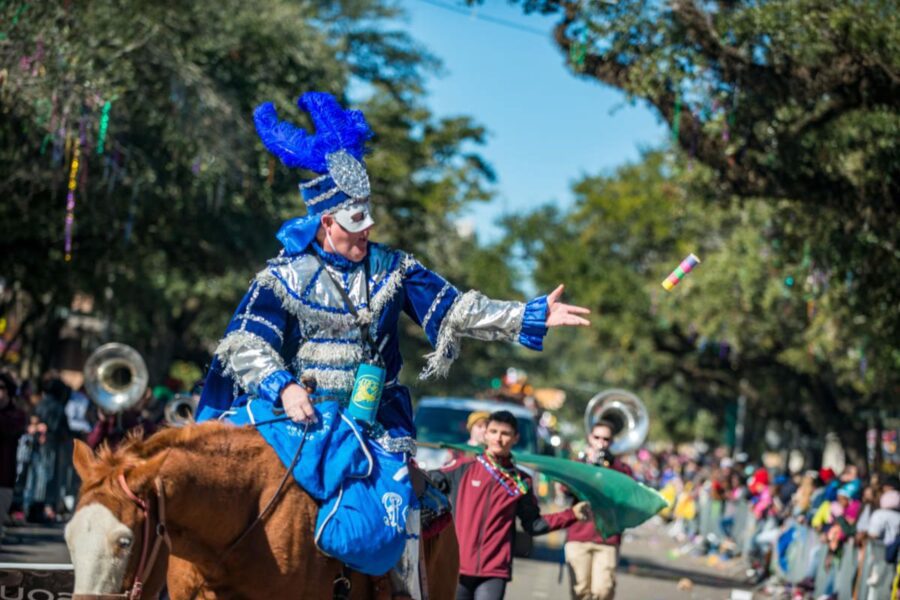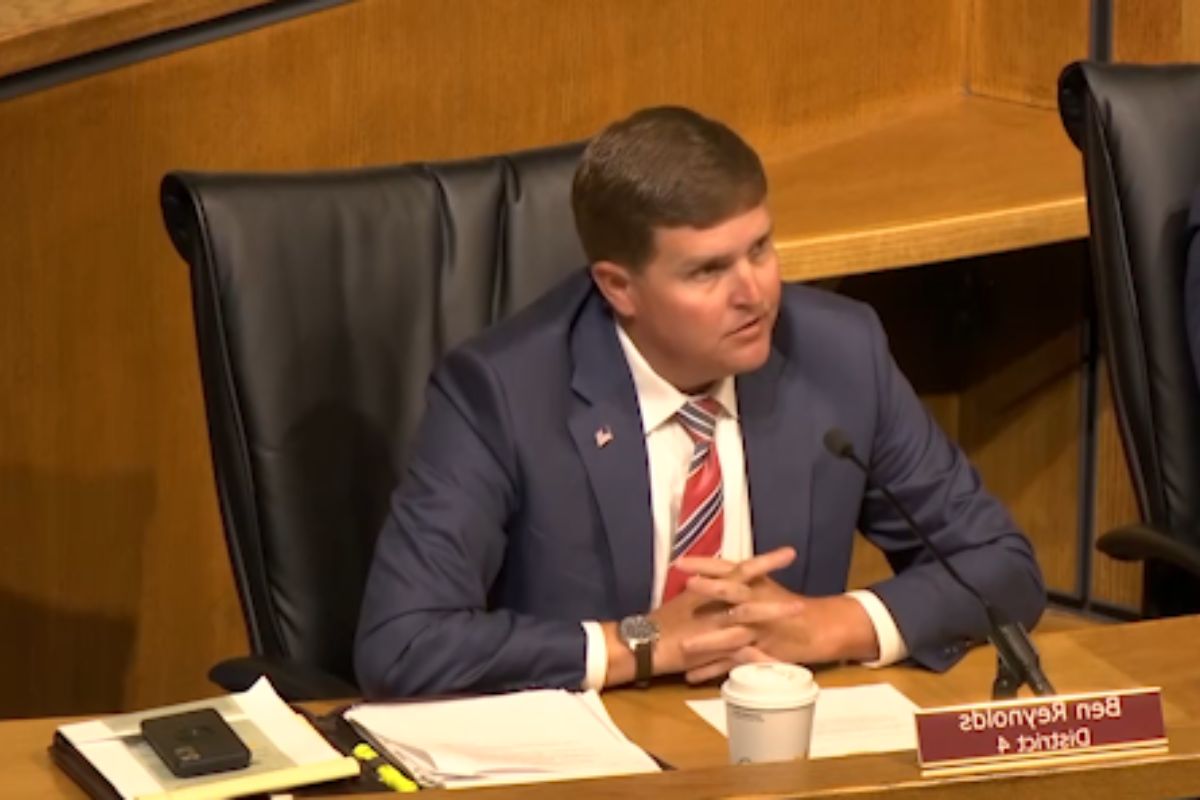Mobile City Council Unveils Protect Horses: In response to a recent incident that sparked public outcry, the Mobile City Council has taken a proactive stance to address concerns regarding the well-being of horses during Mardi Gras parades. With local veterinarians lending their support and the council engaging in discussions, the city is making efforts to strike a balance between preserving the cultural significance of these parades while ensuring the welfare of the animals involved.
With Councilman Ben Reynolds providing his perspective on the matter, this discussion will explore the measures unveiled by the Mobile City Council and the collaborative efforts being made to protect horses during Mardi Gras festivities.
Key Takeaways
- Incident during Conde Cavaliers parade sparks public outcry
- City Council takes prompt action by deploying animal control officers to every Mardi Gras parade in Alabama
- Local veterinarians actively participate in discussions about horse welfare and provide recommendations
- City Council balances tradition and animal welfare by monitoring and regulating horse-related activities while preserving cultural practices
Public Outcry Spurs Action: Mobile City Council Responds to Mardi Gras Incident
In response to public outcry over an incident during the Conde Cavaliers Mardi Gras parade, where a horse collapsed and was reportedly mistreated, the Mobile City Council has taken decisive action to address concerns about the treatment of animals during such events.
The incident, which involved the horse being kicked and subsequently standing up, prompted concerns about the welfare and safety of animals participating in Mardi Gras parades.
In an effort to prevent similar incidents from occurring in the future, the City Council has decided to deploy animal control officers to every Mardi Gras parade in the city. These officers will ensure that animals are treated properly and will respond promptly to any reports of mistreatment or negligence.
Local Veterinarians Extend a Helping Hand: First Equine’s Letter and Council Meeting Attendance
Local veterinarians from First Equine, a trusted horse veterinarian on the Gulf Coast, have stepped forward to offer their assistance in ensuring the well-being of horses during Mardi Gras parades. They have taken proactive measures by sending a letter to the mayor and city council, expressing their concerns and suggestions. Additionally, the owners of First Equine made their presence felt by attending a council meeting and actively participating in discussions about the safety and welfare of the horses.
To engage the audience, here are two sub-lists highlighting the veterinarians’ contributions:
- First Equine’s letter to the mayor and city council:
- Outlining concerns about the well-being of horses during Mardi Gras parades
- Offering suggestions and recommendations for better horse care and protection
- Attendance at the council meeting:
- Actively participating in discussions
- Sharing professional expertise and insights on horse welfare during parades
The involvement of local veterinarians demonstrates their commitment to ensuring the safety and well-being of the horses, providing valuable perspectives to address the concerns raised by the community.
City Council Engages in Discussions: Addressing Concerns and Evaluating Recommendations
During discussions held by the City Council, officials have actively addressed concerns raised by local veterinarians regarding the welfare of horses during Mardi Gras parades and evaluated their recommendations.
City Chief of Staff James Barber revealed that these discussions focused on assessing the suitability of horses for parades.
One key recommendation that emerged from these conversations was that parade marshals should not weigh more than 20 percent of the horse’s weight. This recommendation aims to prevent undue strain and potential harm to the horses during the parades.
By engaging with the veterinarians and evaluating their recommendations, the City Council demonstrates their commitment to ensuring the well-being and safety of the horses.
These discussions and evaluations are crucial steps in implementing effective measures to protect the horses during Mardi Gras parades.

ALSO READ: Madison County Nonprofit Celebrates 75th Year of Empowering Lives
Councilman’s Perspective: District 4 Councilman Ben Reynolds and Cultural Significance
District 4 Councilman Ben Reynolds, a horse owner himself, brings a unique perspective to the discussion on the cultural significance of horses in Mardi Gras celebrations. In light of the recent viral video depicting the mistreatment of a horse during the Conde Cavaliers parade, Councilman Reynolds expressed his concern and recognized the need to address the issue. However, he questioned the appropriateness of direct government intervention and emphasized the deep-rooted cultural significance of horses in Mardi Gras traditions in Alabama.
To engage the audience, let’s explore two subtopics related to Councilman Reynolds’ perspective:
- Historical Significance:
- Horses have been an integral part of Mardi Gras celebrations for centuries, symbolizing strength, beauty, and nobility.
- They serve as a link to the historical roots of the festival, connecting modern-day revelers to the traditions of their ancestors.
- Economic Impact:
- Mardi Gras parades featuring majestic horses attract tourists from around the world, boosting the local economy.
- The horse industry itself contributes significantly to the region’s economy, providing employment opportunities and supporting various businesses.
Balancing Tradition and Animal Welfare: City Council’s Proactive Measures and Collaborative Efforts
In response to concerns raised by the recent incident, the City Council has taken proactive measures and engaged in collaborative efforts to balance the preservation of cultural traditions with the welfare of animals during Mardi Gras parades. The decision to deploy animal control officers to every parade reflects the council’s commitment to ensuring the humane treatment of animals and addressing public concerns.
Additionally, the involvement of local veterinarians in the discussions highlights the collaborative effort to find practical solutions for the welfare of horses involved in these cultural events. By monitoring and regulating horse-related activities, the council aims to strike a balance between tradition and animal welfare. This proactive approach demonstrates their dedication to addressing concerns while preserving the cultural practices that make Mardi Gras parades so significant to the community.
| Proactive Measures | Collaborative Efforts |
|---|---|
| Deployment of animal control officers to parades | Involvement of local veterinarians in discussions |
| Ensuring the humane treatment of animals | Finding practical solutions for horse welfare |
| Addressing public concerns | Balancing tradition and animal welfare |
| Monitoring and regulating horse-related activities | Preserving cultural practices |
| Commitment to animal welfare | Dedication to addressing concerns |

Conclusion Of Mobile City Council Unveils Protect Horses
In response to public outcry, the Mobile City Council has taken action to protect horses during Mardi Gras parades.
Local veterinarians have shown their support by attending council meetings and offering assistance.
The council has engaged in discussions to address concerns and evaluate recommendations.
District 4 Councilman Ben Reynolds has emphasized the cultural significance of the parades.
The council is striving to balance tradition and animal welfare through proactive measures and collaborative efforts.
Our Reader’s Queries
Does mobile have Mardi Gras?
Initiating 2.5 weeks prior to Fat Tuesday, Mardi Gras celebrations bring vibrancy to the Port City. Elaborate floats, managed by masked mystic societies, alongside mounted police and marching bands, weave through downtown Mobile and its surroundings. This festive spectacle captivates nearly a million revelers annually.
When was the first Mardi Gras in Mobile?
In 1703, French pioneers at Twenty-Seven Mile Bluff, the inaugural settlement of Mobile, marked the first observation of Mardi Gras in the New World. In 1711, Carnival was born at the present site as residents united in song, food, and dance.
What are mobiles Mardi Gras colors?
Distinguished from the New Orleans flag, Mobile’s Mardi Gras flag exclusively showcases purple and gold colors. Mobilians have consistently embraced a more refined, less extravagant, and regally tasteful Mardi Gras celebration. The flag’s purple symbolizes justice, while gold represents power.
mardi gras in mobile, alabama 2024
Commencing in February 2024, over 40 parades traverse downtown Mobile and its vicinity. Bonus: Numerous downtown parades offer the opportunity to be enjoyed multiple times.
2024 Mobile Mardi Gras Parade Schedule
Check out the 2024 Mobile Mardi Gras Parade Schedule, starting from Friday, January 26, and continuing through Monday, February 5. Explore additional Mardi Gras celebrations in areas surrounding Mobile, Alabama.
Mobile Mardi Gras 2024 tickets
Mardi Gras Saturday is open to the public with no charge, but an Admission Ticket is required (available at the Mobile Carnival Association office). Attire: Sunday Best.

